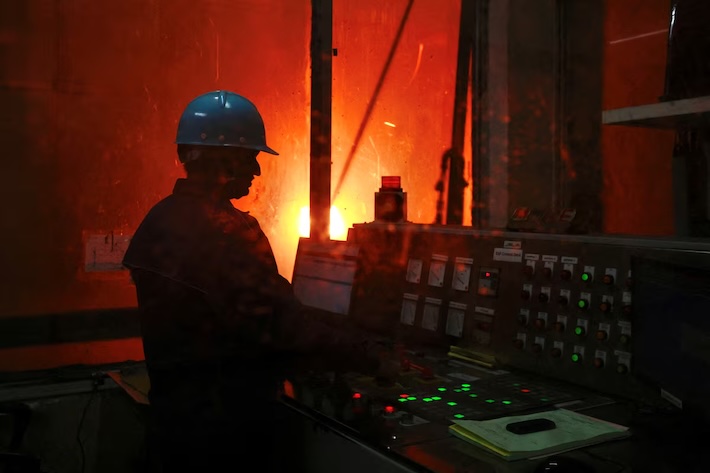The European Union is set to reject India’s demand that its exporters be exempt from paying the bloc’s new carbon tax, that will be applicable from next year, the Financial Times reported citing four officials involved in the process.
The EU’s new carbon border adjustment mechanism — CBAM — will subject Indian exporters to a large import duty that will be set according to the amount of carbon emitted during manufacturing. According to Indian tank-tank CSEP this could cost New Delhi between 0.02 to 0.03% of its GDP.
According to European think-tank Sandberg, Indian iron and steel exporters will face the highest CBAM levies of about $350 million.
India has previously called CBAM an “unfair” levy that would be detrimental to the country’s domestic costs. Since much of Indian manufacturing is still dependant on coal-fired energy, its exporters will face CBAM rates of between 20%-35% in the EU. The bloc is India’s second-biggest export destination with nearly $100 billion of exports in total in 2023.
Earlier, India suggested it would levy its own export fee on products liable for CBAM. The levy would be based on the value of a product instead of its carbon content, it said. But EU officials told the FT that India’s plan would not be enough to incentivise manufacturers to cut their emissions.
It would also set a precedent with countries like the US, China and South Africa that are against CBAM and have asked for exemptions.
EU officials said, however, that the bloc was open to reducing levies on Indian products if New Delhi agreed to setting up a domestic carbon pricing scheme. Indian officials are consulting on whether to do so, the FT reported.
Reaching a deal on CBAM will be critical to efforts by the EU and India to finally reach a Free Trade Agreement, which has been stalled for more than a decade.
Read the full report: Financial Times
- Vishakha Saxena
Also read:
India’s Green Transition In A Chokehold
Asia’s Billion-Dollar Carbon Boom?
India’s Big Plans To Decarbonise Industries Struggle To Take Off
India Plans Countrywide Climate Insurance Amid $180bn Losses
A European Push Could Help India Fill Carbon Removal Gaps
New Tax Cuts To Accelerate India’s Shift To Solar, Wind Energy
India Renewable Power Output Jumps, Coal Use Falls in First Half
Extreme Sudden Rainfall Kills Hundreds in Pakistan and India
Firms Underestimating Risks From Carbon-Fuelled Climate Change
Study Says Biochar Can Solve Asia’s Fertiliser Shortages
The Cost of India’s Crop Waste Burning
Zero-Carbon Breakthrough For Industry’s Dirty Businesses
Asian Steelmakers Failing on Shift to Renewables, Survey Finds
China Shifting to ‘Green’ Steel Production as EU Levy Looms























